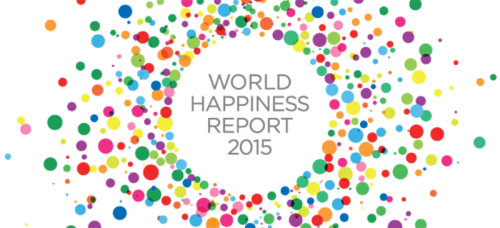
With the U.S. being listed as the 15th happiest nation in the world in the recently published 2015 World Happiness Report, it becomes poignant to discuss the areas in which our nation has fallen short of its citizens’ needs.
The report, published and written by a group of renowned United Nations economists, determines the happiness of a nation using a science that observes gross domestic product per capita, social welfare, average life expectancy, freedom to make life choices, generosity and freedom from corruption.
These factors, as explained in the report, are purposefully selected as they are frequently used in the research literature to be important in explaining national-level differences in life evaluations. The report also explains that these factors have been proven to correlate and have direct effects in human life evaluation.
As with any statistics that present some sort of list or hierarchy, the purpose of this report comes into question. With socialistic factors considered in the study such as social welfare, it becomes easy to argue that a socialist agenda is the impetus behind releasing these findings.
The authors behind the report, however, argue otherwise. They suggest that the report is meant to help introduce new focuses in policy making because “when countries pursue GDP in a lopsided manner, forgetting about social and environmental objectives, the results can be adverse for human well-being.”
Though the U.S. boasts a higher GDP than many of the top 10 countries, areas such as social welfare funding need to be better maintained. That being said, many scholars have offered insight on the potential reasons for why the U.S. did not make the top 10.
Economist Richard Rahn argues that the Swiss have done well for themselves due to a loose federal government and low taxation. Switzerland ranked no. 1 in the United Nations report. Jefferey Sachs, one of the writers of the report, argues that factors such as lower inequality rates stemming from more welfare, affordable healthcare and a stronger federal government are the reason for these countries’ happiness. These arguments, among many others, are largely contradictory.
It is these very contradictions that bring about the U.S.’s dilemma. Though many of the top 10 nations share similar policies and ideologies, they also differ in crucial ways. That being the case, it becomes difficult to determine which policies would best suit the American people. Furthermore, the U.S. is not afforded the luxuries that many of these nations boast. With all the top 10 countries having populations nearly a tenth of the size of the U.S., they have been able to create tightly knit social and economic infrastructures. This is simply impossible for the U.S. due to its large and diverse population. This difference, among others, captures why the U.S. cannot simply emulate what other happier nations are doing; they are simply too different.
This is not to suggest that the World Happiness Report does not provide valuable insight on how nations can improve their well-being, but simply that this insight is only one part of the solution. Some of the implications, such as increasing welfare in order to combat high inequality rates, are applicable to all nations as financial stability is essential for all people.
However, in the case of the U.S., perhaps the best way to raise our national happiness is to actively address the issues that are most pressing. With the gay rights movement to the rioting in Baltimore, for instance, the first steps that the government can look at to improve the nation’s happiness are easy to make out.
If the U.S. government wishes to better its national ranking in future World Happiness Reports, it needs to make a conscious effort to address both demographic weaknesses as well as social concerns. But most importantly, as citizens of this country, it is important to demand this from current and future policymakers for it is our happiness that will be affected by their choices.



